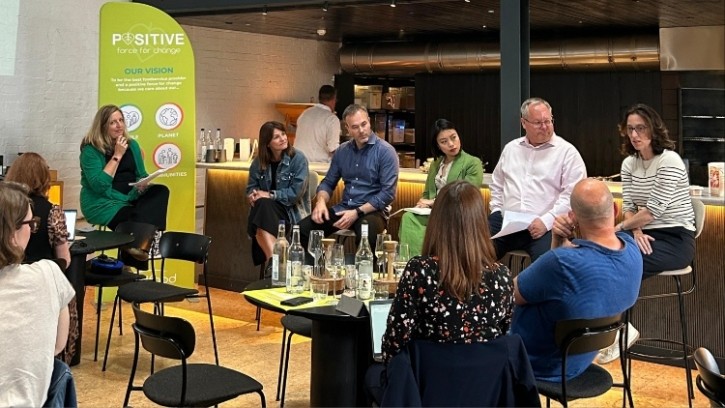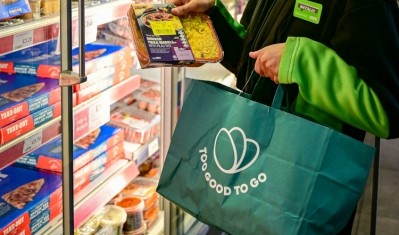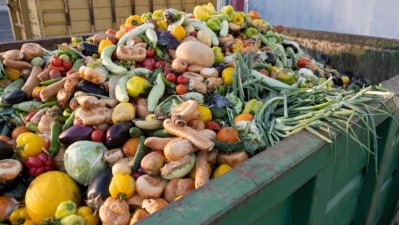News
Seaweed packaging and zero waste kitchens: Ideas for sustainable supply chains

At a recent event hosted by UK wholesaler Bidfood, a panel of sustainability experts from across the sector discussed how the industry can work in collaboration to deliver a more sustainable future, while also creating tasty and healthy food in the process.
Mintel research has shown that 78% of consumers find the following three factors ‘most important’ when buying food and drink products – natural ingredients (37%) environmental impact (22%) and how ethical a product is (19%). It is clear that sustainability cannot just become a box ticking exercise, embracing it is necessary for appealing to consumers and industry partners alike.
The event, ‘Plateful Pursuits for Positive Change’, focused on low impact ingredients, food surplus and how foodservice can reinvent menus with seasonal produce, healthier and more inclusive dishes, while also taking into account animal welfare and carbon data.
The food served for the attendee was prepared by Bidfood chefs, who took a zero waste approach to the menu by utilising every aspect of each ingredient and buying produce directly the source without the use of packaging. The meal was delicious and there was not a waste bin in sight!
‘Lots of work to be done’
The panel was chaired by Bidfood head of sustainability Julie Owst, with speakers including David Bryngelsson from CarbonCloud, Hoa Doan from Notpla and Sally Smith from Upfield among others.
“There’s a lot of work to be done to make food more sustainable and a key part of this is education and awareness,” said Owst.
“The food we’re all eating, and unfortunately wasting, is a massive contributor to carbon emissions, so the food industry has a great role to play in influencing consumer behaviour about the food they eat. Carbon data will help, but we mustn’t forget other factors such as adopting regenerative farming methods and prioritising products with accreditations and certifications.”
Bryngelsson co-founded CarbonCloud in 2019, a firm which calculates carbon footprint data for food industry companies. Bidfood works with CarbonCloud so that it can communicate and report on its emission more accurately while also improving its sustainability initiatives.
“On a global level food is responsible for 26% of emissions,” Bryngelsson said during the panel discussion.
“So even if all industries around the world decarbonise, we cannot solve the climate crisis without change from the food sector.”
Shifting to the work CarbonCloud does with Bidfood, he emphasised that measuring is crucial in a B2B and B2C context as it allows firms to quantify the progress they have made in reducing emissions. However, capturing the true impact of Scope 1, 2 and 3 emissions produced by a company remains a challenge.
“With food, the vast majority of emissions occur before the product is consumed,” continued Bryngelsson.
“But the value chain is incredibly complex and this makes calculating its impact difficult, as most of the emissions for most products happen on the farm, far away from the retailer or the consumer. Our role is to work with producers, manufacturers, suppliers and retailers to give food businesses a more detailed understanding of the emissions associated with every step of the supply chain.
“With accurate reporting our clients can tell their customers that they should buy more of their product in order to meet their own sustainability and net zero goals because they have evidence for the emission reductions they have achieved. This is a powerful message.”
New solutions to old problems
Next up, Doan, the head of impact and sustainability at packaging firm Notpla, spoke about the firm’s achievements to date and the innovations it has developed during its 10-year history.
“Since 2014, Notpla has helped replace 10m single-use plastic units with alternatives produced using natural materials,” Doan explained.
“During extensive R&D processes, our team sought to mimic the properties of traditional packaging used in the food sector and we found that seaweed can offer an effective option. It grows 1m per day and because it occurs naturally under the sea requires no land use, fertiliser or fresh water.
“We recently launched our first seaweed-based cutlery, which are entirely compostable and manufactured with sustainable seaweed, while we also produce food containers and edible energy gel pods which both incorporate seaweed too.”
Finally, Smith, chief sustainability officer at Dutch plant-based food manufacturer Upfield, called on the industry to find ways to combine carbon reductions with great tasting products that excite and inspire chefs and consumers.
“Plant-based alternatives need to deliver on taste and affordability,” Smith told the event.
“The food system can only experience a true shift if the new products that come onto the market can be accessed by everyone in an equitable way. Plant-based also need to have the same functionality as their counterparts – you cannot have soft serve ice cream that crystalises or a cream that won’t whip.
“As Upfield we work extensively with our partners during the R&D phase so that our plant-based butter, cheeses and creams can be switched into recipes without impacting the quality of the dish.”
In other news, Wrexham-based Jones Village Bakery has been acquired by the Menissez Bakery Group for an undisclosed fee.

















